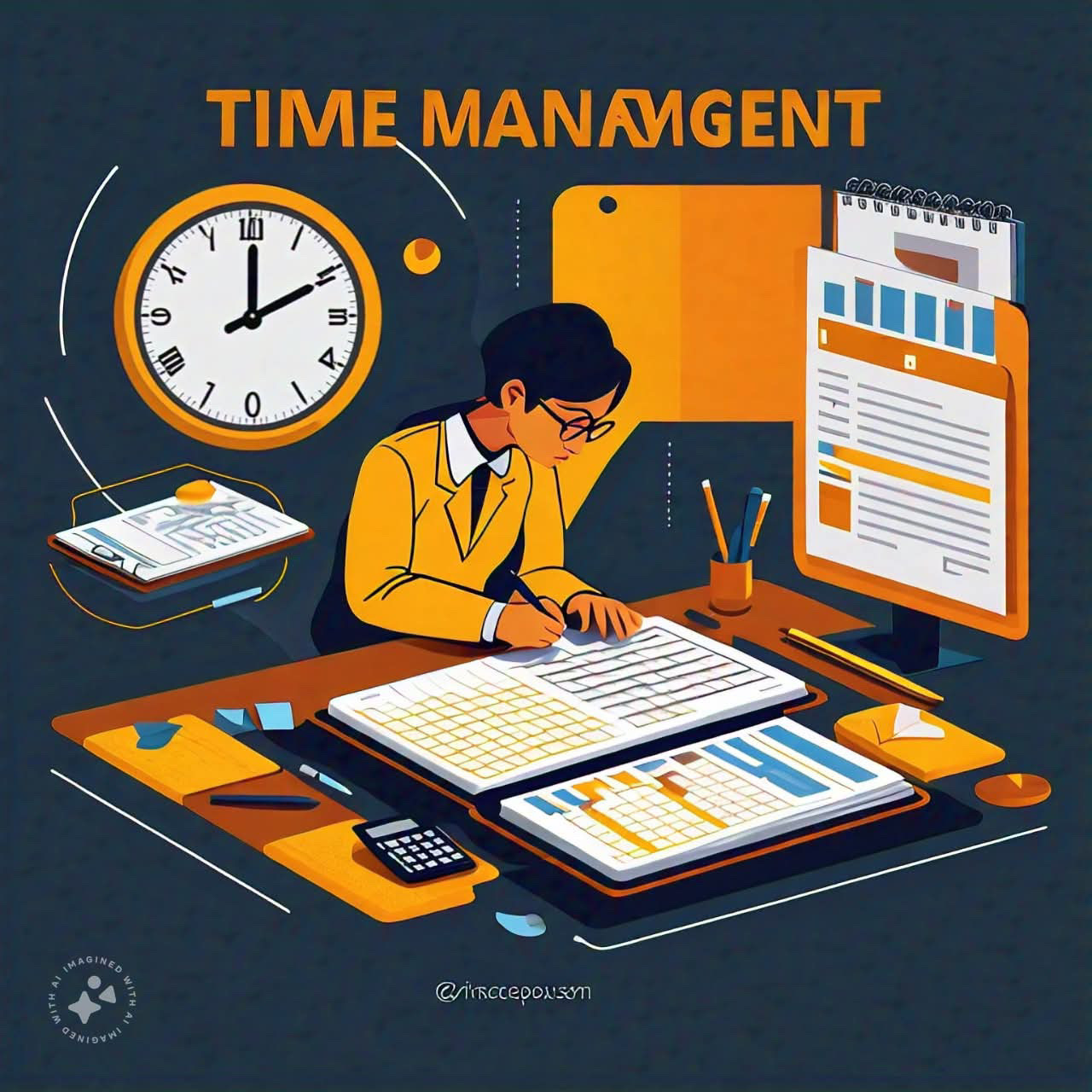Do you ever find yourself at the end of a workday wondering, Where the heck did the day go? Or perhaps, as your day begins, you feel overwhelmed thinking, Will this day ever end? Managing time effectively is one of the most challenging aspects of modern life, especially with the myriad of tasks, meetings, and priorities demanding our attention. For many, their schedules are dictated by external factors such as mandatory meetings, regular maintenance tasks, travel, or deadlines that require strict adherence. So how do you manage your time to ensure everything gets done?
Learning from the Navy: The Power of Structure
Some of the best time management skills I learned came from my time in the Navy. In that environment, everything was a priority. Chiefs or officers would frequently interrupt tasks with urgent directives, demanding immediate attention. To stay on top of the chaos, we relied on a simple but effective tool: a notebook.
By keeping a detailed list of priorities and tracking how long each task took, we were able to structure our days. This practice taught me the importance of understanding the time commitment for routine activities. Whether you’re writing reports, programming, or coordinating shipments, having a clear idea of how long tasks should take helps you schedule your day effectively. This ensures you not only complete your priorities but also leave time for “housekeeping” or unplanned tasks that inevitably arise.
Minimizing Distractions
As we head into 2025, distractions like phones and social media are increasingly problematic. What used to take 30 minutes now takes an hour because of constant interruptions. To combat this, it’s crucial to be mindful of distractions and take deliberate steps to minimize them.
One effective strategy is time blocking. By allocating specific periods in your calendar for focused work, you can prevent others from scheduling meetings during those times. Tools like Microsoft Outlook make this easy to implement in a corporate setting. The more you can establish a rhythm to your day, the more productive you’ll be.
Streamlining Processes with Lean Thinking
Another valuable method for improving time management is analyzing your processes through a Six Sigma or lean perspective. These methodologies emphasize eliminating waste and improving efficiency. Start by breaking down your work into micro-steps. Analyze each step and ask yourself, Why am I doing this? If a task has no clear value or purpose, consider eliminating it. For example, you might discover that some reports or actions are performed out of habit rather than necessity. By eliminating unnecessary tasks, you reclaim valuable time and focus on what truly matters.
Additional Time Management Strategies
1. The Eisenhower Matrix
This method categorizes tasks into four quadrants based on urgency and importance:
• Urgent and Important: Do these immediately.
• Important but Not Urgent: Schedule these for later.
• Urgent but Not Important: Delegate these tasks.
• Neither Urgent nor Important: Eliminate these.
This matrix helps prioritize tasks effectively and ensures your energy is spent on meaningful work.
2. The Pomodoro Technique
The Pomodoro Technique involves working in focused intervals (typically 25 minutes) followed by a short break. This approach improves focus and prevents burnout. Over time, it can help you accomplish more by keeping your mind fresh and engaged.
3. SMART Goals
Setting Specific, Measurable, Achievable, Relevant, and Time-bound (SMART) goals ensures you’re working on tasks that align with your objectives. By breaking larger goals into manageable steps, you create a roadmap that reduces procrastination and promotes steady progress.
Final Thoughts
Managing time effectively requires consistent effort and self-awareness. Whether you’re using a notebook to track priorities, time-blocking to protect your focus, or employing methodologies like the Eisenhower Matrix, the key is to find what works for you. Remember to periodically analyze and adjust your processes to ensure they remain efficient.
Time is one of our most precious resources. By working smarter—not harder—and reclaiming wasted time, you can achieve more while enjoying a less stressful, more productive day.
